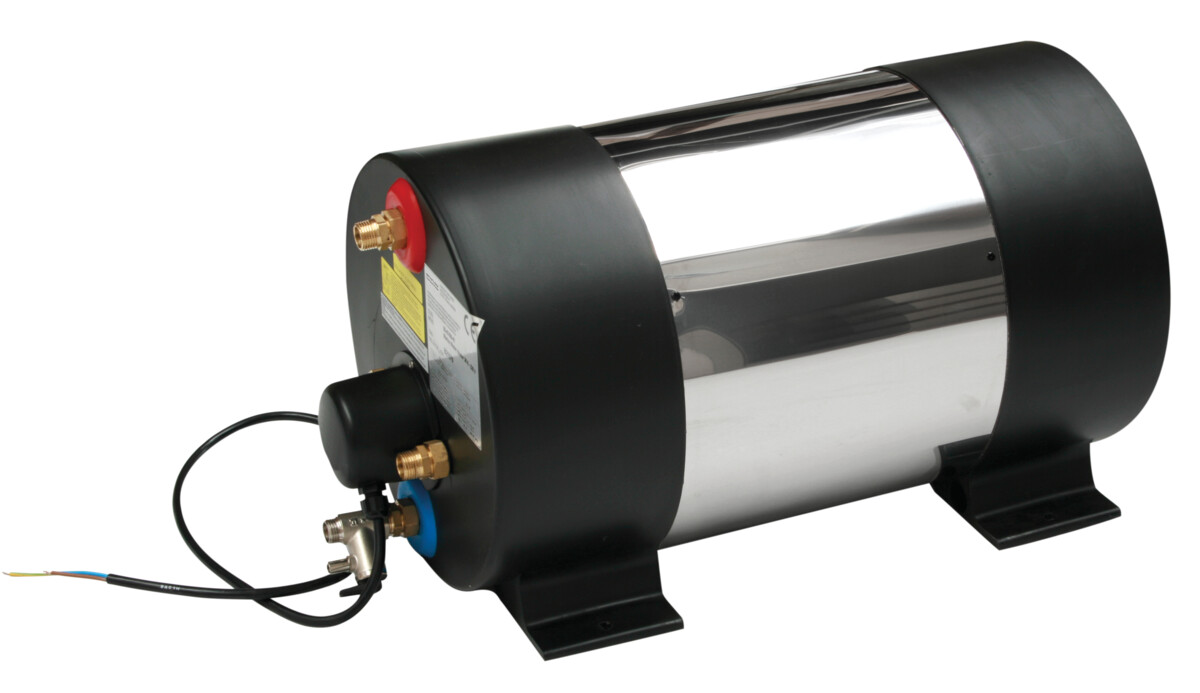Hi,
On using a 12 volt DC heater vs using an inverter with a 120 VAC heater.
I'm not seeing why the 12 DV heater is not a better choice?
An example.
Examples:
Use 12 volt DC heater:
12 volt, 1000 watt heating element, wire runs to water heater 6 ft each way (12 ft round trip)
amperage = 1000 watts / 12 volts = 83.3 amps
Using BlueSea Circuit Wizard,
#3 AWG gives 2% voltage drop (0.24 volt drop on supply plus return)
#6 AWG would be miniumum gauge required for 83 amps, and gives 4% voltage drop
Power loss in the wiring for #4 AWG = (0.24 volt)(83 amps) = 20 watts
Power loss if #6 (min for ampacity) = (0.48 volt)(83 amps) = 40 watts
This gets harder if the water heater is further away from the battery, but does not seem like it gets out of hand -- if you move the example water heater (say) 10 ft away, you would have to go up to #1 AWG to keep the 2% voltage drop, or #4 AWG for 4% voltage drop.
Use 120 volt AC heater:
120 volt 1000 watt heating element, wire run 3 ft (6 ft round trip) to inverter, tank, inverter efficiency 85%. Ignore voltage drop along the 120 VAC wire from inverter to hot water tank.
There would be some voltage drop on the wires from battery to inverter, but they might be pretty large gauges for other loads, so, ignore these losses.
Power loss in the inverter depends on how good it is -- looking at some of the data and tests out there, the better inverters are around 90% and the not so good ones more like 80%. Say 85% as an average.
Power loss is about 15% for the inverter
Power loss = (1000 watts) (0.15) = 150 watts
Not counting any voltage drop losses in the wires.
Seems like for this example, the losses with the inverter setup are about 150 watts and losses for the 12 volt heater setup are more like 20 to 40 watts.
Seems like the only downside of the 12 volt setup is having to use some heavier wires, but the changes don't seem that dramatic. And, if a lower wattage heater is used, the gauges would go down, but heating would take longer.
The inverter also has the issue of idle power use if there is no other reason to leave it on except the hot water heater.
Maybe I'm missing something?
Gary






